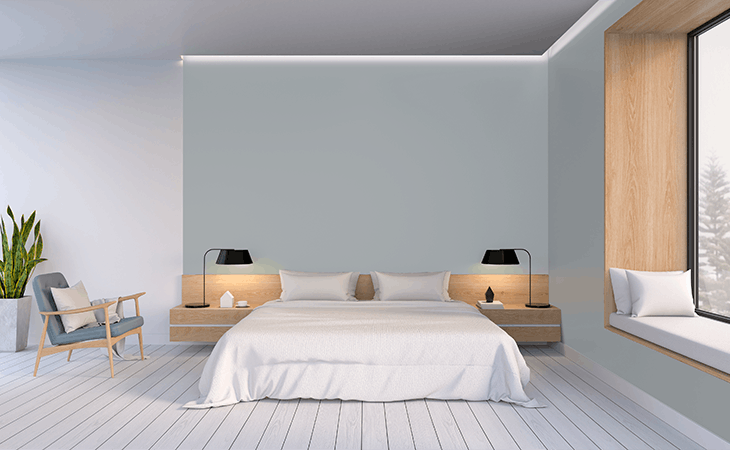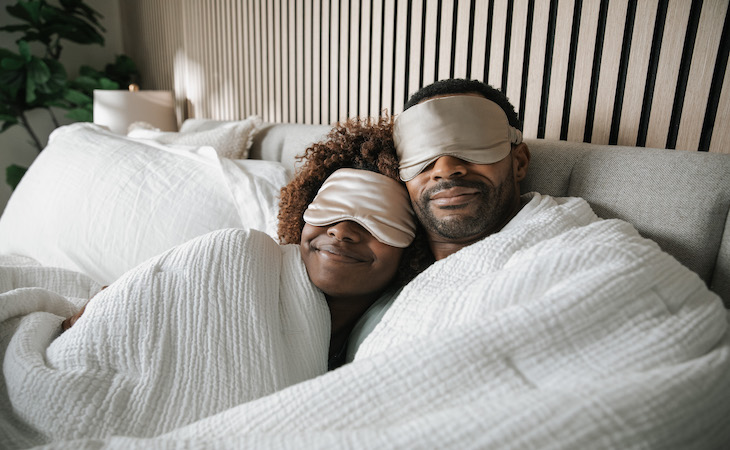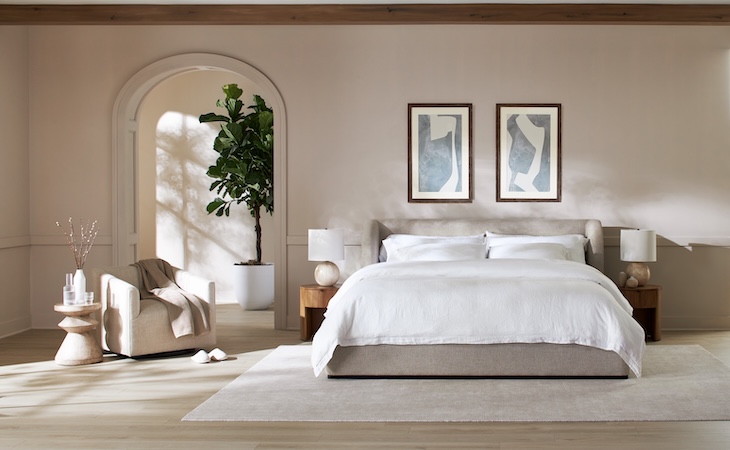The pandemic has sparked an increased interest in minimalism, as many of us pursue a more simplified, uncluttered life to cut down on stress.
Ready to get back to basics? Below, learn all about the benefits of minimalism and how to embrace it in your home (and life) so you can stress less and sleep better.
The sleep and health benefits of minimalism
Research shows minimalism can help curb stress and, in turn, improve your sleep.
A 2016 study published in the Journal of Environmental Psychology discovered a direct link between clutter and anxiety. Clutter can raise levels of cortisol—the stress hormone—leading to anxiety and poor sleep.
According to another 2016 study, practicing what researchers call voluntary simplicity (or a low consumption lifestyle) can increase life satisfaction. The researchers note that individuals who practice minimalism—or incorporate some aspects of the lifestyle—had better mental health.
Megan Dufresne, founder and principal of MC Design, echoes this sentiment, telling us that her minimalist design clients tend to be calmer, more serene, and grateful. “They’re kind of happy with where they are and [aren’t] trying to get more items to fill voids,” says Dufresne.
Another benefit to adopting minimalist ideals is the huge cost savings. Practicing minimalism means passing on shopping for stuff you don’t need and being more mindful of what you do buy. You may also be able to make money selling the unneeded items you purge.
How to embrace minimalism for better sleep
Everyone practices minimalism differently—there’s no hard and fast rule on how to do it. That said, the following guidelines can help you get started.
Here’s how to incorporate minimalism into your life for reduced stress and better sleep:
Get rid of what you don’t need or love
Each time you think about buying (or keeping) something, ask yourself these three questions:
- Do I need it?
- Do I love it?
- Do I (or will I) use it?
This process can help you separate the items that don’t serve a purpose (toss) from the things that have real meaning in your life (keep).
If you’re stumped on a particular item—even after asking the three questions—put it aside and move onto the next for the time being. Remember: Decluttering can be hard at first, but it gets easier over time.
One thing that can help make it easier to part with items you don’t need? Dufresne suggests reframing your view of the situation. Don’t think of it as throwing items away—you can give them a second life by donating to a Goodwill or other secondhand store. Your clutter can in fact turn out to be useful for someone else.
Simplify your bedroom setup
Adopting minimalism in the bedroom can promote calm feelings, which can lead to improved sleep.
Dufresne offers a few quick tips for embracing minimalism in the bedroom:
- Eliminating excess decorations such as throw pillows.
- When it comes to bedding, stick to one texture. Having more than one texture can upset the whole minimalist vibe, she says.
- Get into the habit of putting things in their place. “Everything should have a home,” Dufresne says. “If you don’t have a home for something, you probably don’t need that item.”
- Utilize under-bed storage. You can use wicker baskets to hide items like books or laundry.
- Do you have a messy closet? Use a closet organizer to create more room and maximize space.
The bottom line: Minimalism is different for everyone—there aren’t any universal rules to follow. But adopting the core principles—and even starting with just one or two techniques—can go a long way toward lowering stress, boosting sleep quality, and improving your overall well-being.
For more ways to optimize your bedroom for better sleep, try these wellness design tips.




